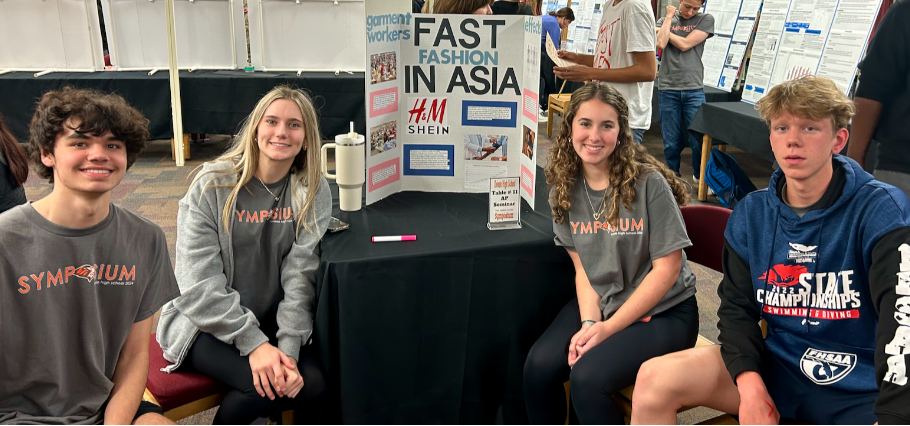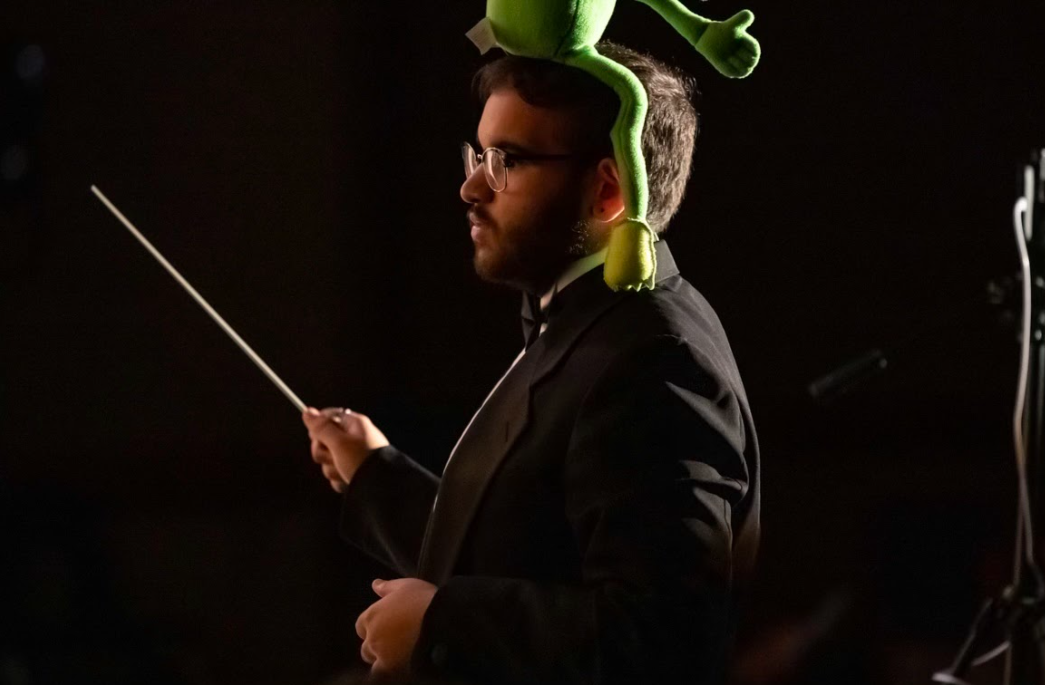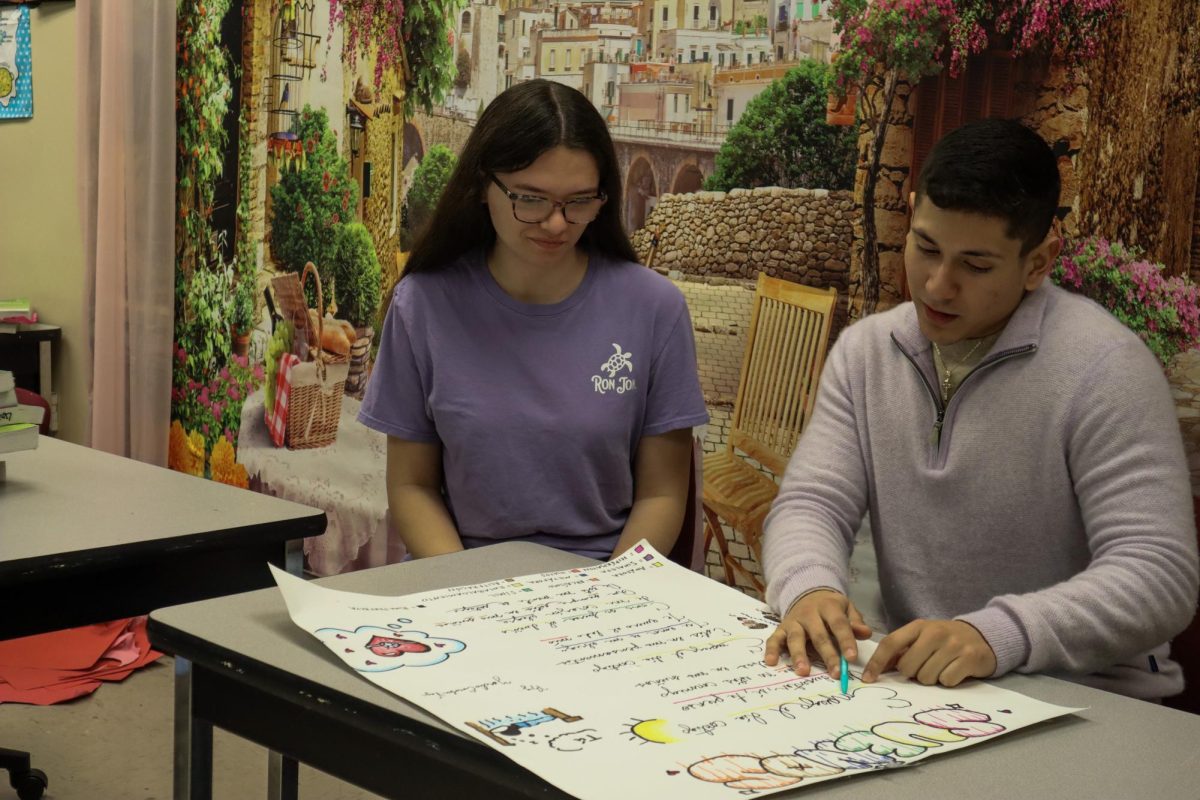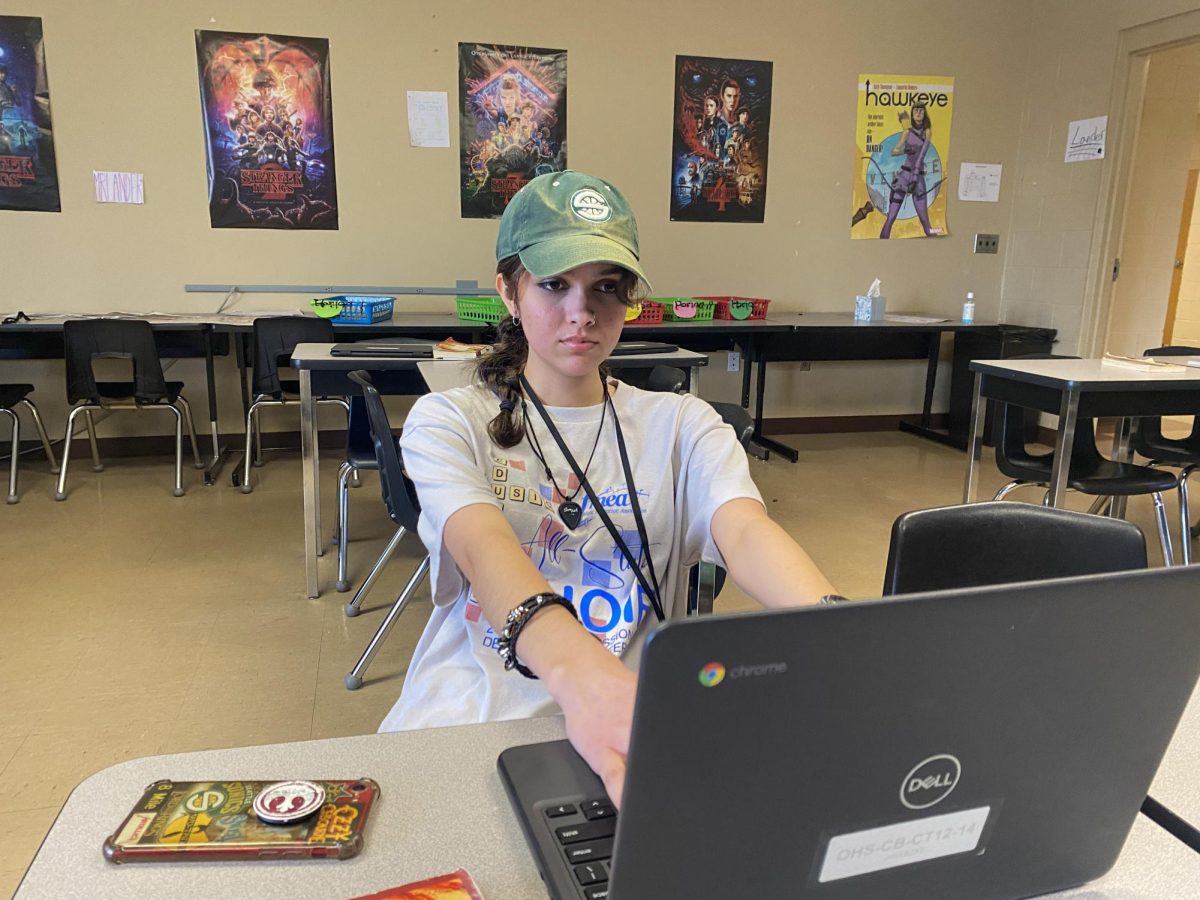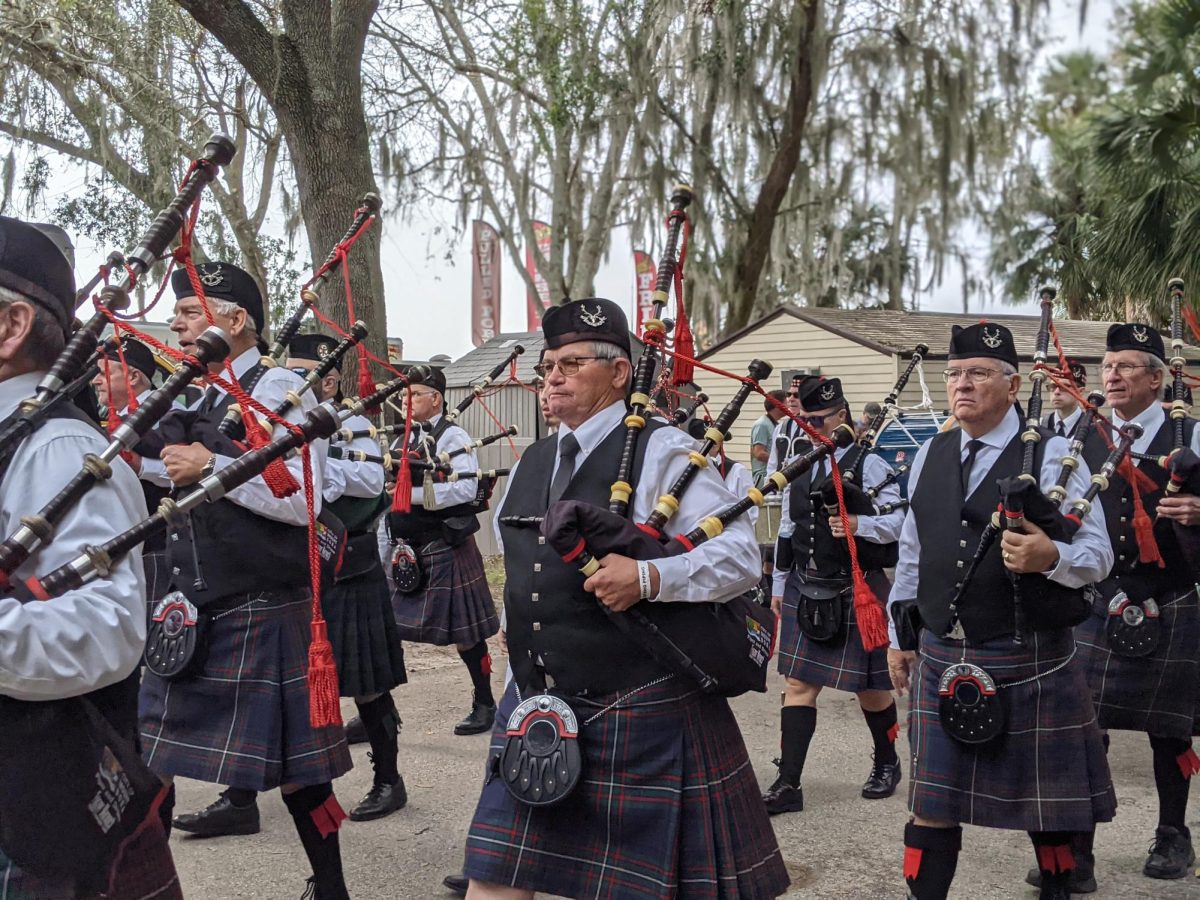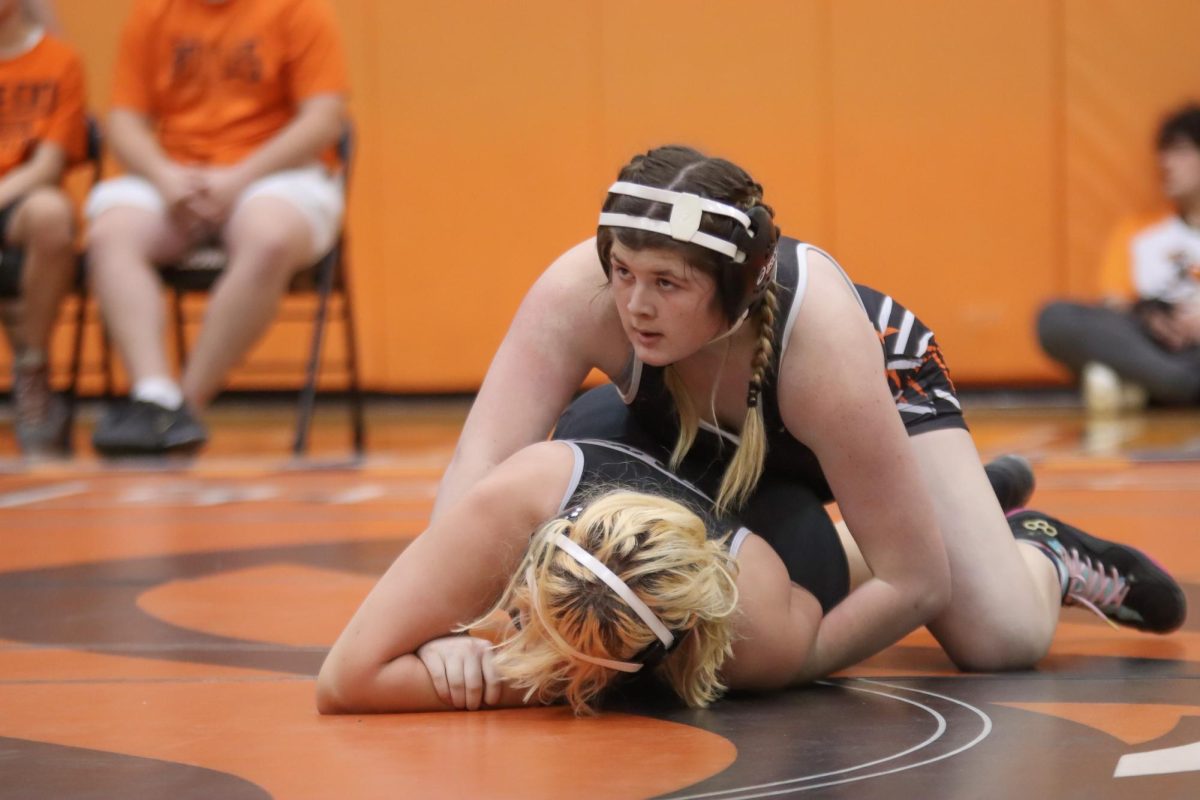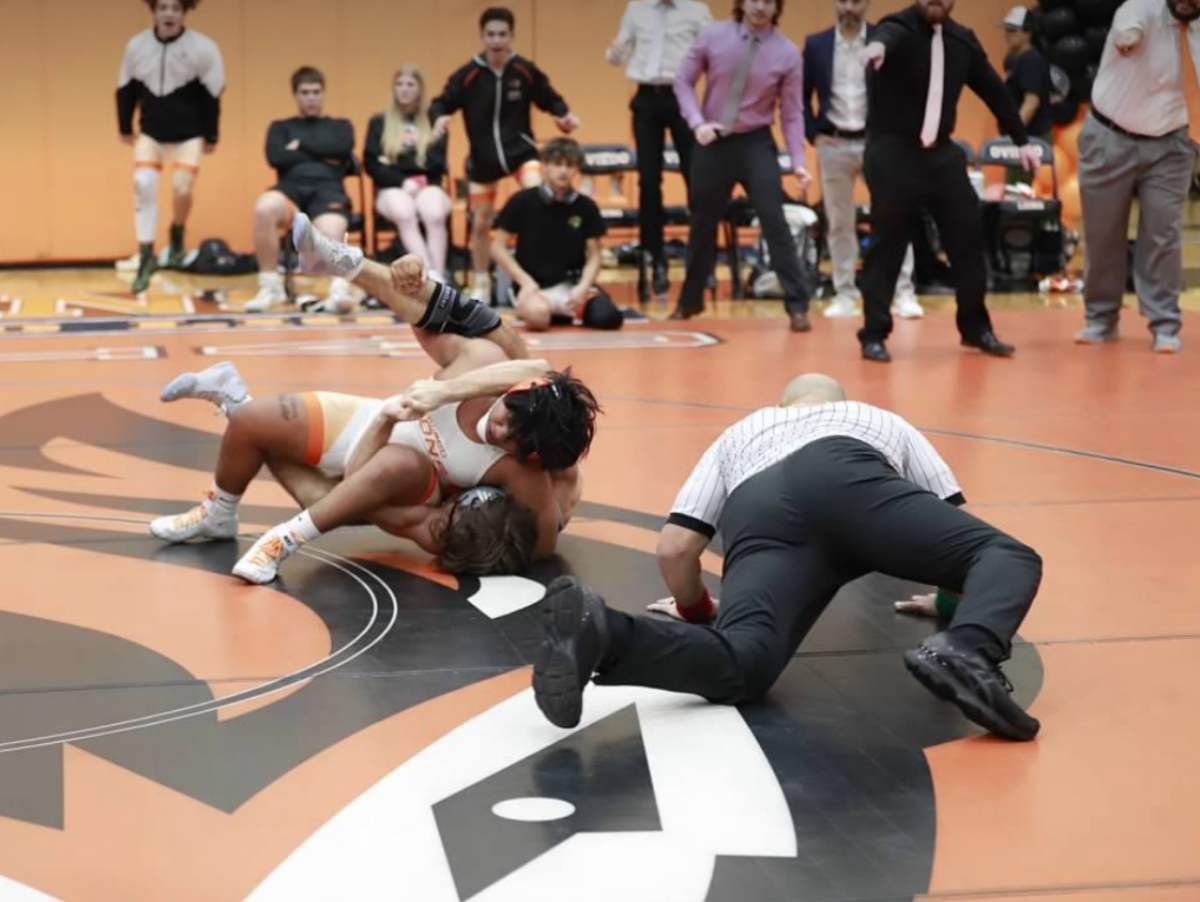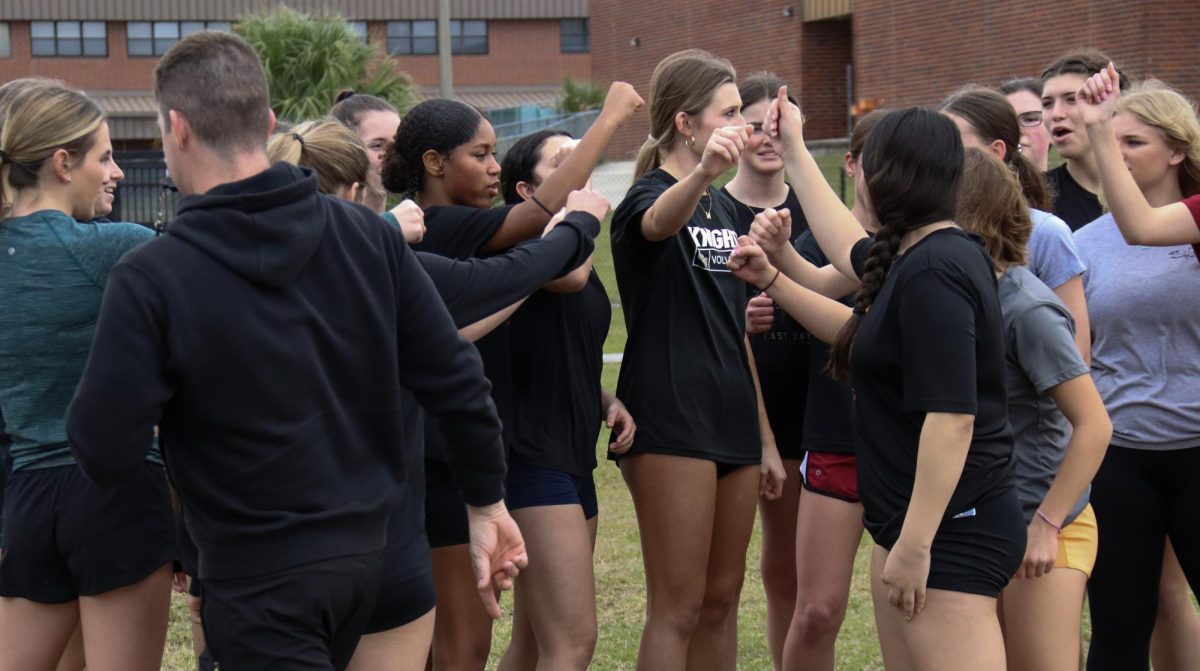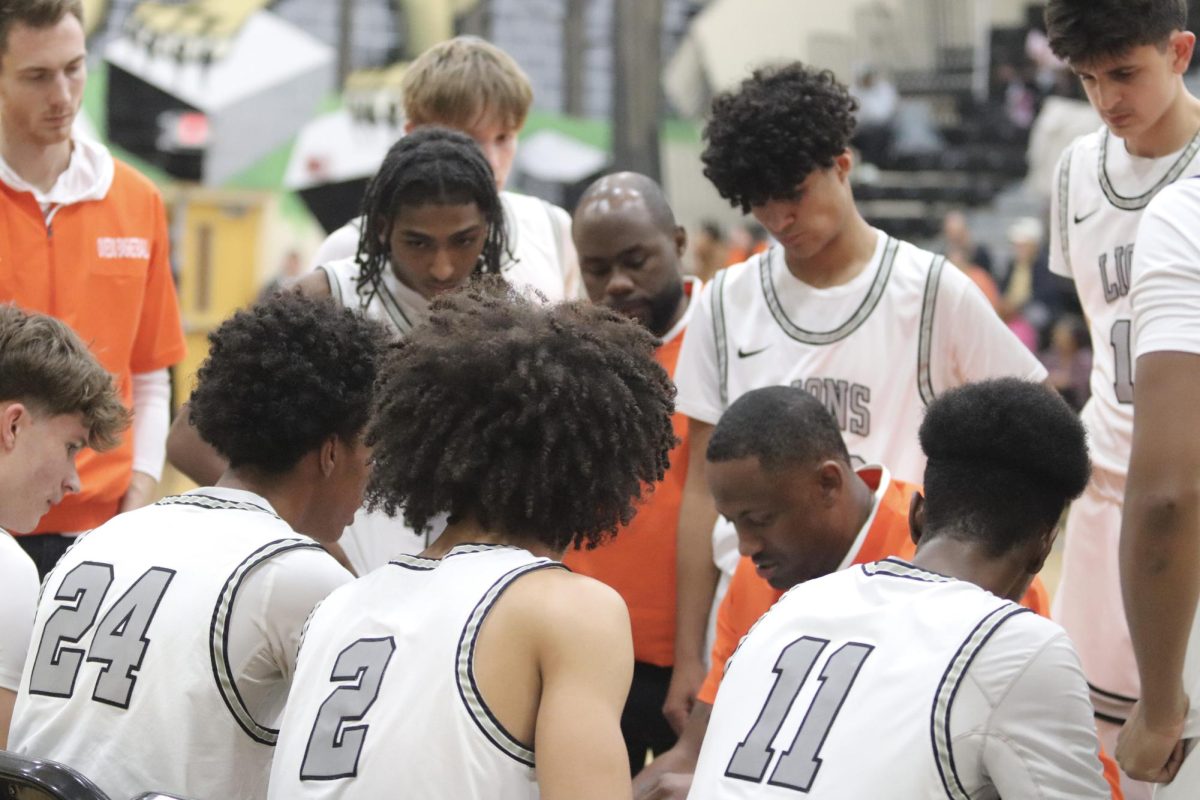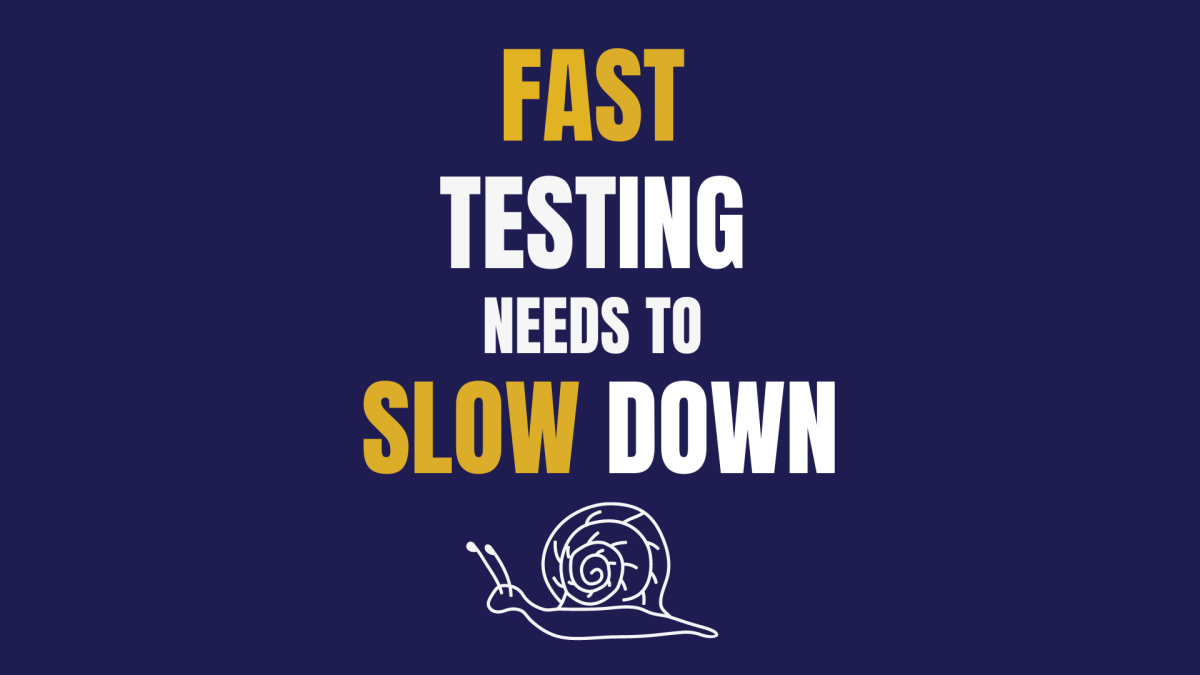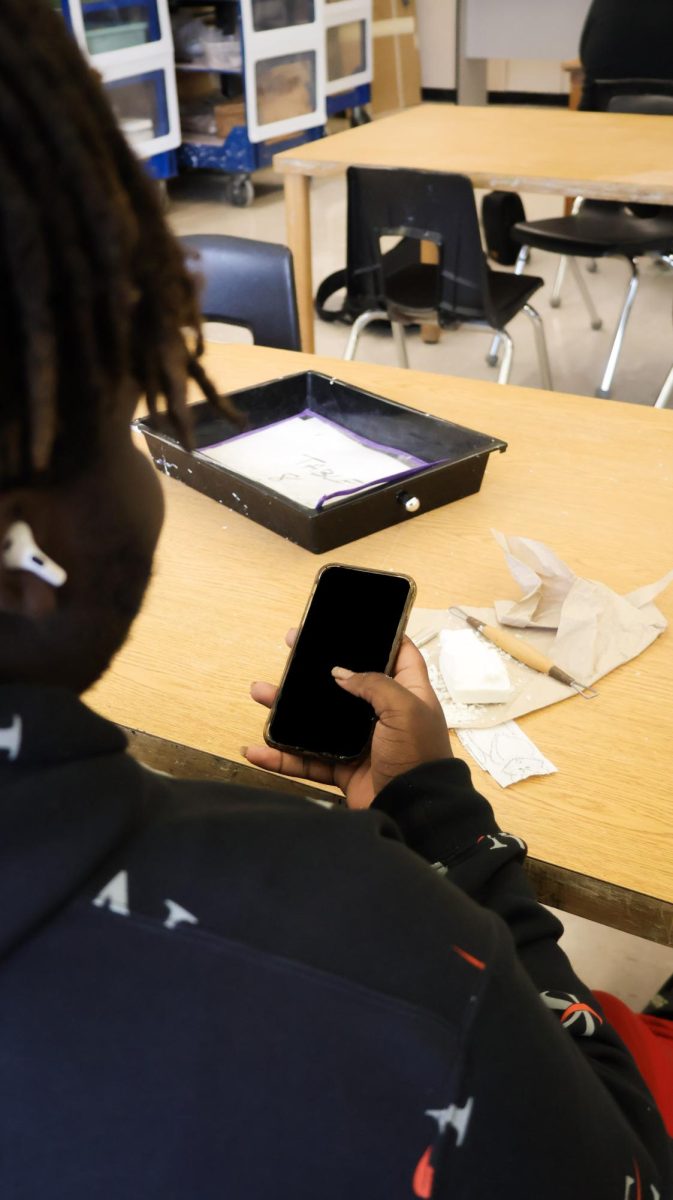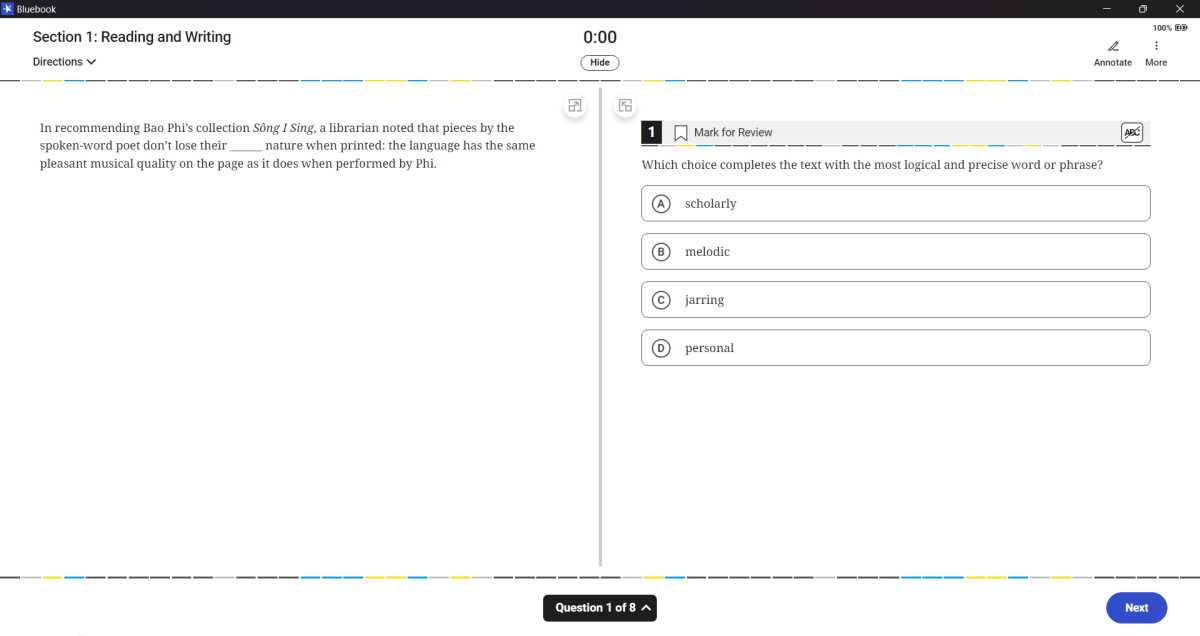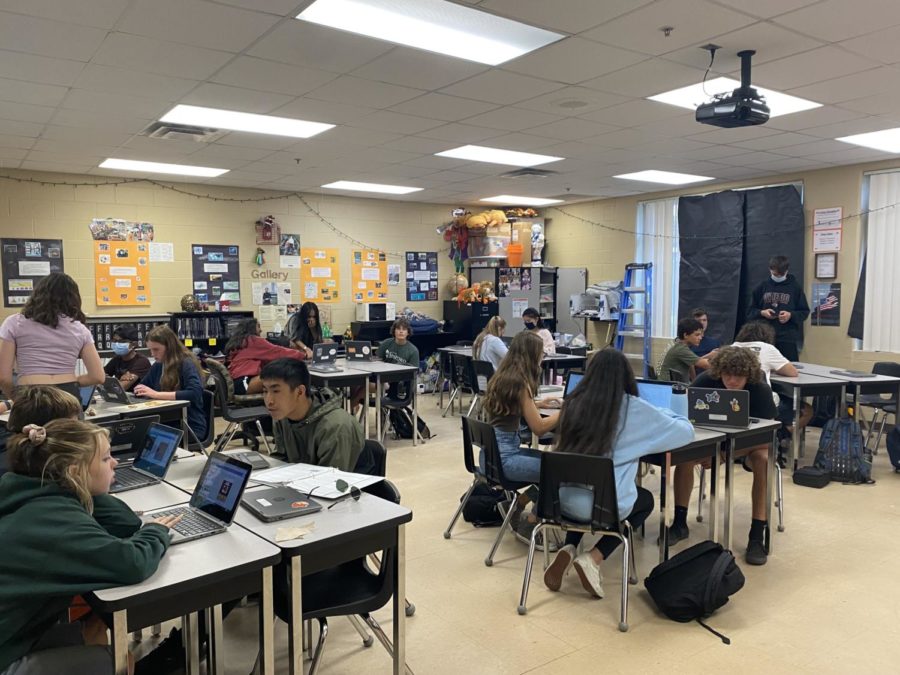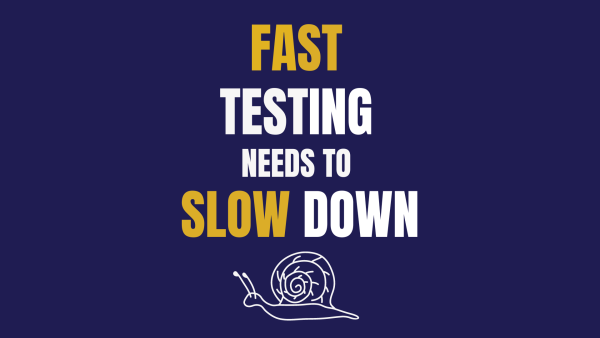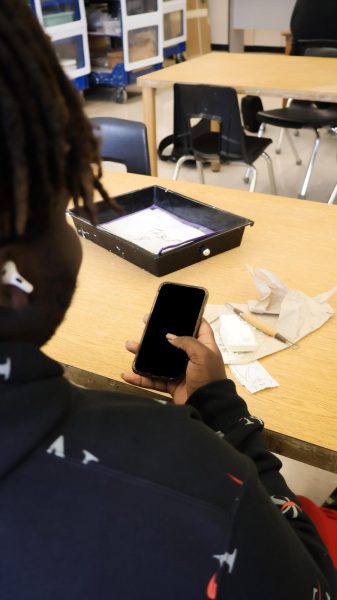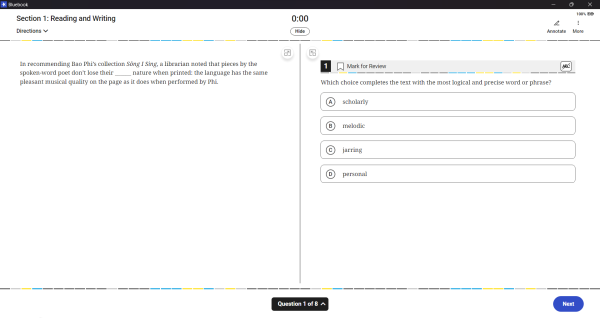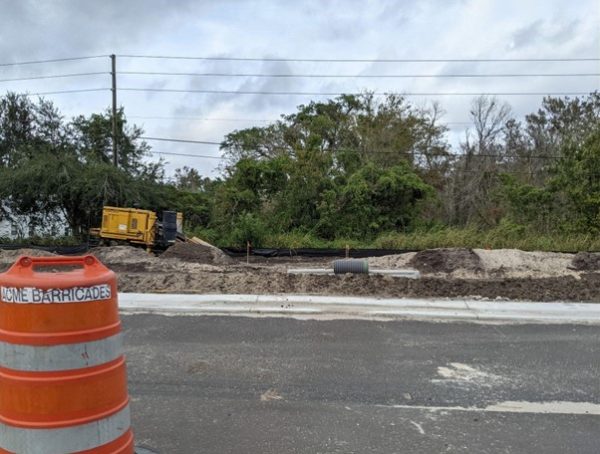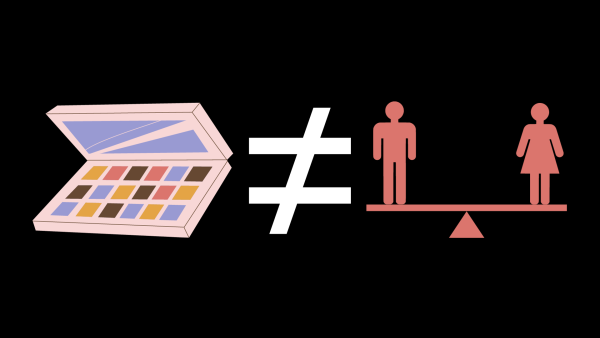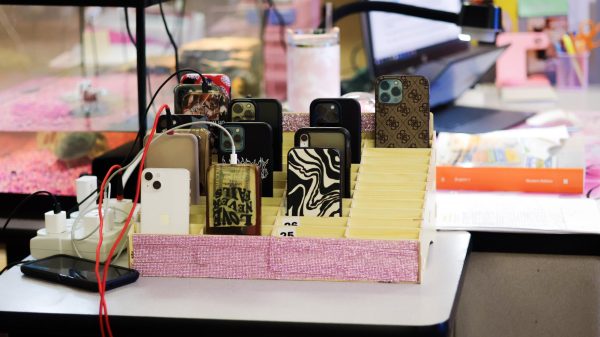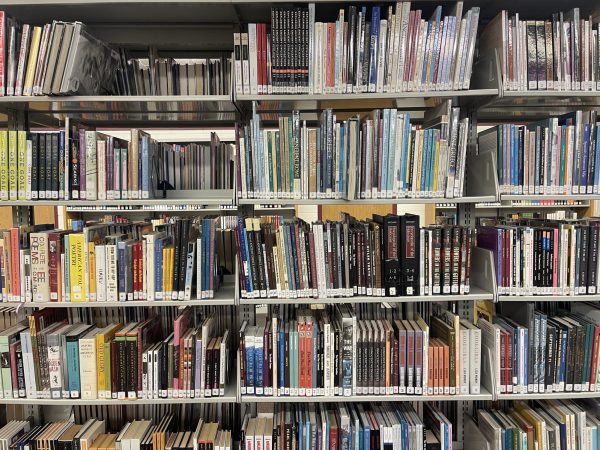Limiting education is painful to students
NOTE: The portion of the bill discussed in this article has since been revised.
AP Human Geography students work on the food drive.
April 4, 2023
A young girl stands at the bathroom sink, crying. “Am I dying?” she whispers as she walks over to the full-length mirror and realizes she bled through her pants. She clutches her stomach, nearly falling to the ground from pain; it feels like her insides are being crushed. She tries to ask for help, but her teachers aren’t allowed to tell her what’s happening to her. She ties a hoodie around her waist and goes back to class, trying to pretend everything’s fine. But it’s not.
This story will become a reality, hundreds, if not thousands, of times over, if house bill 1069 becomes law. It was recently proposed by house representative Stan McClain, and it seeks to limit reproductive education of all kinds in grades 6-12. This includes puberty videos, which are often used to teach fourth and fifth graders about the changes happening in their bodies, such as girls getting their period.
While periods and other parts of puberty are commonly thought of as part of middle school, many girls experience them far earlier than that. A study on menarche published by the National Library of Medicine states that a girl’s first period is only considered early if it begins before the age of 10. By passing this bill, the state will be deeming natural processes that are actively happening in young girls’ bodies as inappropriate conversation.
By not allowing teachers to talk about it, we are limiting the trusted adults who girls can talk to about the changes happening in their body. This is a horrible idea, for a number of reasons. Primarily that girls may not have anyone in their home life to discuss these changes with. They may have a single father who is uneducated on the female body, or simply no one in their life who cares about them enough to have these conversations with them. Girls with a lack of trusted adults at home will likely turn to the internet for answers, which can be an incredibly unsafe place for children without adult guidance. According to the Beau Biden Foundation, one in five children report being solicited or contacted by a predator in the last year.
But even if girls do have trusted adults at home, or they manage to safely find education about puberty online, the active avoidance and prevention of conversations surrounding puberty can make it into a source of shame for them. By telling teachers they aren’t allowed to talk about it, it creates a narrative that girls’ bodies are inappropriate, which is a belief that may stay with them for the entirety of their lives.
Women and girls frequently face objectification and sexualization, with an estimated 81% of women experiencing some form of sexual harassment and/or assault in their lifetime, according to a study conducted by Stop Street Harassment. The narrative that girls’ bodies are inappropriate directly feeds into victim blaming and teaches them to accept harassment, rather than acknowledging that their bodies are fine, society is the problem.
And while this portion of the bill has since been revised, it is completely ludicrous that it ever got on there in the first place and serves as a poor reflection on those in the Florida House of Representatives.






